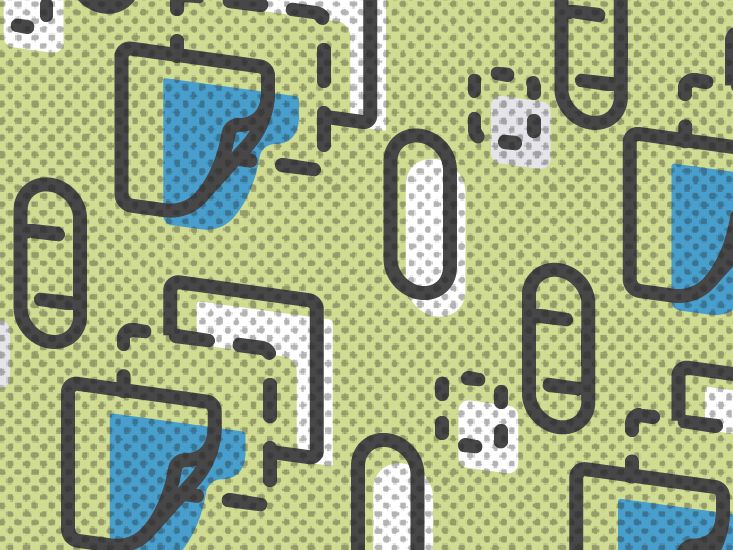Examining the Rising Prevalence of ADHD Diagnosis and Supportive Communication
In recent years, recognition of attention-deficit/hyperactivity disorder (ADHD) has grown rapidly, leading some to wonder if we face an epidemic mislabeling normal behavior as a disorder. However, research supports genuine neurological roots for ADHD. At the same time, addressing the stigma around diagnosis and finding compassion remain crucial.
Debunking Claims of Overdiagnosis
Some attribute rising ADHD rates to overzealous diagnosis, hypothesizing it now explains expected childhood distraction and mind wandering. However, findings calculates only 60-70% of those qualifying for a diagnosis receive one. Other studies using strict impairment criteria estimate a worldwide prevalence around 3-5% among children and adolescents.
While cultural factors like school pressures and comparisons likely play a role in growing motivation to evaluate troublesome symptoms, evidence does not support claims that ADHD overpathologizes normative behavior.
Connecting Genetic and Environmental Risk Factors
Twin studies reveal ADHD’s high heritability - likely connected to genetic variants involving dopamine and norepinephrine signaling which regulate attention, motivation, and self-control. However, environment also matters - exposure to toxins, poor nutrition, brain trauma can heighten vulnerability.
Ultimately ADHD stems from complex interplay between genetic susceptibilities, developmental issues like premature birth, and lifestyle variables. Though definitions and controversy around edges exist, ADHD reflects objectively measurable chemical and circuitry differences in brains.
Reducing Stigma Through Understanding
Judgment that ADHD symptoms reflect moral weakness or deliberate noncompliance stems from lack of biological understanding. Learning ADHD surfaces from divergent brain development rather than choice may help reduce stigma that discourages those affected from seeking help.
Examining ADHD's Debilitating Impact
While public knowledge of ADHD has grown substantially, myths and misconceptions around its challenges persist. Understanding realities faced dispels dismissive notions and cultivates compassion.
The Difficulty of Daily Functioning
ADHD is defined by dysfunction from inattentiveness, hyperactivity, and impulsiveness significant enough to impair normal life activities. From education to jobs to relationships, those with ADHD chronically underperform capabilities due to executive functioning differences.
What appears as laziness or incompetence often reflects neurological inability to consistently activate mental processes that enable paying attention, controlling impulses, regulating emotions, organizing details and completing tasks.
The Exhaustion of Compensating
Coping with expectations amidst ADHD symptoms requires enormous effort through consciously managing what happens automatically in other brains. Maintaining focus, avoiding errors or impulsive words, and compensating for forgetfulness demands relentless exertion most take for granted.
The extra expenditure of energy needed to simply get through daily expectations often leaves those with ADHD utterly depleted. What’s visible is only the tip of the iceberg of constant conscious compensation.
The Anguish of Lost Potential
Despite above-average intelligence, the vast majority of individuals with ADHD experience catastrophic underachievement as torturous wasted potential. Even medicated, only 5% attain a college degree due to ongoing residual impairment.
Moreover, 60% demonstrate another psychiatric issue like depression or anxiety disorders connected to the pain and self-judgment inflicted by frustrated dreams, failed goals, and shame in not meeting society’s standards or expectations.
Employing Mindful and Supportive Communication
Because ADHD often remains invisible, insensitive comments further isolate those affected. But education can help clue people into realities behind symptoms to enable compassion over judgment.
Thinking Before Speaking
Implying those with ADHD merely need to “try harder” or “apply themselves” dismisses neurological dysfunction. Such remarks merely damage self-esteem rather than motivate. Reminding yourself of barriers they face before commenting can help circumvent hurtful language.
Showing Emotional Support
Living with variable symptoms and social stigma carries a heavy emotional toll met with little empathy by society. Offering non-judgmental listening and acknowledging struggles without diminishing them can provide cherished reassurance when needed most.
Accommodating Differences
Because rigid expectations fuel shame, nurture abilities by accommodating needs like task checklists, quiet workspaces, frequent breaks, reminder texts/emails or extended deadlines. Structure the environment, not the person, and focus praise on effort shown despite obstacles.
Rising recognition of ADHD provides opportunities to confront stale assumptions that blame individuals for what stem from pairwise variances in cognitive wiring. Moving forward requires replacing dated perceptions with educated insights about the disorder’s daily realities and humanity of those who live it.
FAQs
Is the increasing rate of ADHD overdiagnosing normal behavior?
No, research accounts for about 60-70% of those qualifying for a diagnosis not receiving one. Strict impairment criteria estimate adult prevalence around 3-5% globally, disputing overdiagnosis claims.
What causes ADHD?
ADHD stems from a complex interplay between genetic susceptibilities involving dopamine and norepinephrine signaling differences, developmental issues like premature birth, and some lifestyle variables.
What are helpful things to say to someone with ADHD?
Use non-judgmental listening, acknowledge their struggles without diminishing, offer emotional support, structure environments around their needs, and praise effort shown despite obstacles.
Why do daily challenges remain for those on ADHD medication?
While helping boost focus and impulse control, medications do not fully treat residual neurological issues. Those with ADHD still require consciously exerting exhaustive effort to compensate for what happens automatically in other brains.
Disclaimer: This article is for informational purposes only and does not constitute medical advice. Always consult with a healthcare professional before starting any new treatment regimen.
Related Coverage
Daytrana side effects such as skin irritation, insomnia, and appetite loss can be eased with timing, placement, and diet tips....
Adderall shortages can make getting your prescription difficult, but checking pharmacy inventory online, calling around, and asking about alternatives can help locate it....
The FDA has approved multiple generics for Vyvanse pending patent disputes. Low cost versions could launch in 2023, expanding access and lowering prices....
Research on gluten free diets for ADHD has shown mixed results. It may help a subset of children with gluten sensitivity. Learn about foods to eat and avoid....
While ADHD rates increase, evidence counters overdiagnosis claims, instead supporting genuine neurological roots and debilitating daily impairment for those affected....
What to expect when getting tested for ADHD near you - medical history, exams, specialist referral. Learn about diagnosis criteria, tests, medication and therapy....
Cooking yogurt at high temperatures can destroy probiotics. But gentler heating, prompt refrigeration, and certain preparation methods help preserve live cultures....
The ongoing Adderall shortage has severely impacted ADHD patients in the Kansas City region. Here are medical and lifestyle methods for coping until supplies rebound....
Want to capture amazing bounce house party photos? Learn pro techniques for lighting, exposure, focus, composition, camera settings, action shots, and safety....
People with ADHD often wonder if they're good at multitasking. Learn how ADHD and multitasking interact and what works best....









